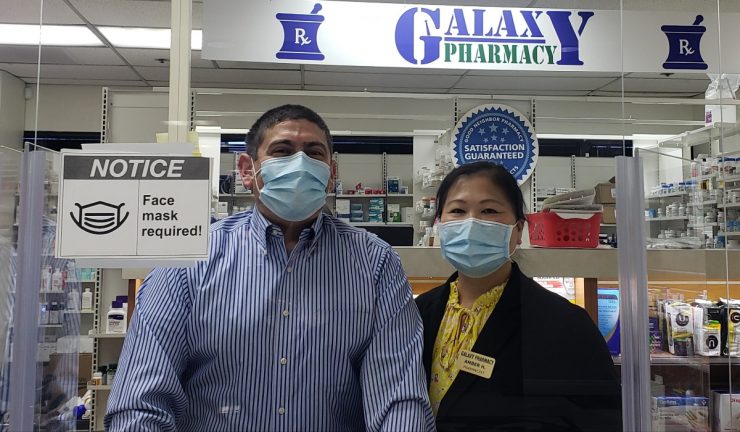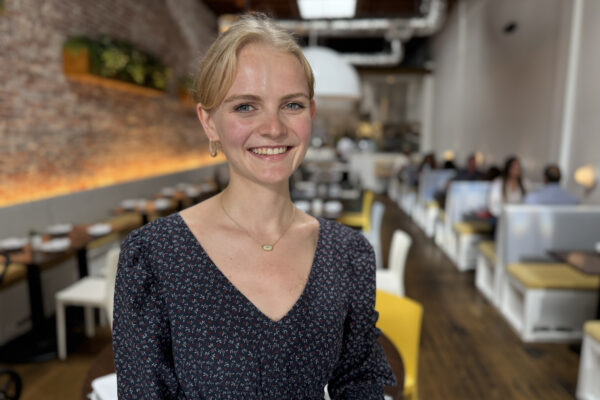When COVID-19 vaccines first rolled out, the mega-site vaccination sites at convention centers, amusement parks and sports stadiums understandably caught the limelight of the moment.
Now there’s a new player quietly but diligently entering the vaccination effort as vaccine supply grows – the independent pharmacy. Such pharmacies will be the workhorse of vaccination in many communities, especially those serving rural populations, says Karl Hess, PharmD, associate professor and Director of Community Pharmacy Practice Innovations at Chapman University School of Pharmacy (CUSP).
Hess especially understands the role of community pharmacies. He leads CUSP’s efforts around “Flip the Pharmacy,” an initiative of Community Pharmacy Enhanced Services Network aimed at expanding pharmacies to be next-generation patient care centers. The initiative’s goal is to help pharmacies play a bigger role in the management of medications and prescriptions related to chronic conditions. He believes that as more COVID-19 vaccination shifts to independent pharmacies, people will better understand that pharmacies are health care centers, not just prescription fillers.
“The pods and the massive vaccination centers have done a fantastic job getting the most vulnerable vaccinated, but as the pandemic continues and we need to get more people vaccinated, the independent community pharmacy is going to be such an easier destination for many people,” Hess says.
In many states, pharmacists have long been authorized to provide immunizations, but this new role offers an opportunity for patients to gain a greater understanding of other medical services pharmacists can provide, says Hess, who with his wife, also a pharmacist, owns and operates an independent community pharmacy. Through a grant provided by the Community Pharmacy Foundation, he represents CUSP in the Flip the Pharmacy effort and coaches fellow independent pharmacists.
What impact might the pandemic have for the independents? Hess has several thoughts on the topic.
Pharmacies have long provided flu shots. What has been different about COVID-19 immunization efforts?
“For COVID-19, we had to create an appointment-based system within the pharmacy to coordinate with the inventory of vaccines being sent to us, and to provide backend reporting to the state. Now we have this appointment-based model built into our systems and operations. So I see opportunities for us to continue that and start scheduling patients for other services.”
What might that look like to a typical patient?
“If someone has diagnosed diabetes, hypertension or high cholesterol, we do medication counseling on demand. Now we can use that vaccine appointment model and work toward transitioning to an appointment system when we can dedicate more time and go into more depth with the patient and do medication reviews.”
How is that different from an office visit with a primary physician?
“Pharmacists are the medication therapy experts and understand how things like herbal supplements, over-the-counter medications, and of course prescription medications can interact with a patient’s other medications and disease states and even if those medications are appropriate for their age, sex and even their personal genomic profile.”
Are there some populations the community independent pharmacy is especially well-equipped to serve – seniors, rural residents or people with little internet access?
93% of Americans live within six miles of a community pharmacy, so we’re pretty much accessible to all and almost serve as that ‘last mile’ in healthcare.
It sounds like it takes some entrepreneurial spirit to run your own shop, too. Are there unique rewards?
“There certainly are. I would rather be my own boss than have someone be my boss when it comes to running a pharmacy. For me, it’s a much more rewarding way to practice and provide patient care when you do it on your terms. All pharmacists should be able to ‘practice at the top of their license’ and work directly with patients. I feel that I am making a difference in people’s health. My hope is that beyond the pandemic, the public really sees and values what the pharmacist brings to health care and starts to demand more of those higher level services.”
Learn more about Chapman University School of Pharmacy.




